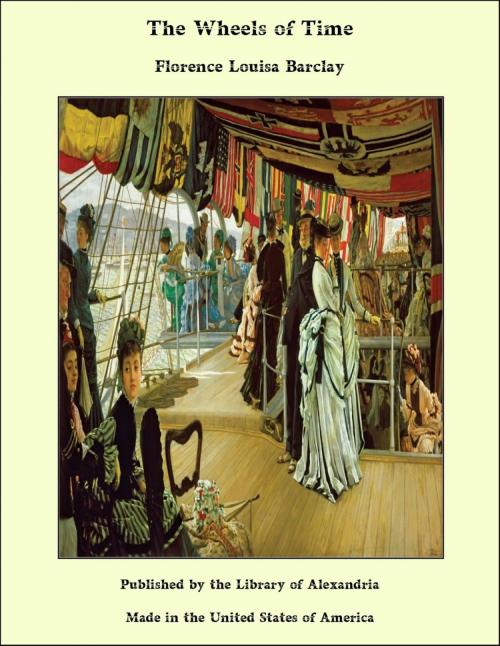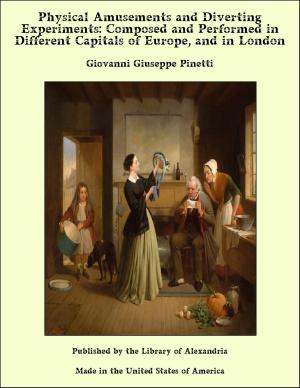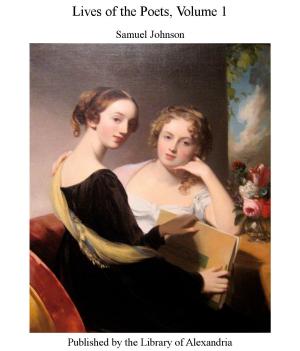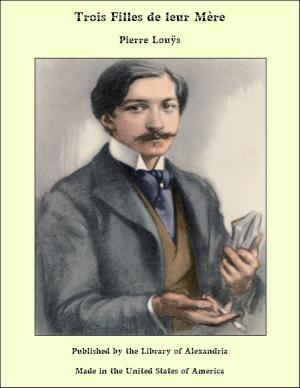| Author: | Florence Louisa Barclay | ISBN: | 9781465619686 |
| Publisher: | Library of Alexandria | Publication: | March 8, 2015 |
| Imprint: | Language: | English |
| Author: | Florence Louisa Barclay |
| ISBN: | 9781465619686 |
| Publisher: | Library of Alexandria |
| Publication: | March 8, 2015 |
| Imprint: | |
| Language: | English |
The doctor stood, with his hand on the doorknob, and gave a final look back into his wife's boudoir. There was nothing in that room suggestive of town or of town life and work—delicate green and white, a mossy carpet, masses of spring flowers; cool, soft, noiseless, fragrant. Standing in the doorway the doctor could hear the agitated clang of the street-door bell, Stoddart crossing the hall; the opening and closing of the door, and Stoddart's subdued and sympathetic voice saying: "Step this way, please." A heavy, depressed foot or an anxious, hurried one, according to the mental condition of its owner, obeyed; and the shutting of the library door meant another patient added to the number of those who were already listlessly turning over the pages of bound volumes of Punch or scrutinizing with unseeing eyes the Landseer engraving over the mantelpiece. In former days the waiting-room used to be the doctor's dining-room, but before he married his pretty wife she put her foot down firmly on this question. He had been explaining the Wimpole Street house and its arrangements as they stood together in her sunny rose-garden. "But, Deryck," she had exclaimed in dismay, waving her hands at him, full of a great mass of freshly gathered roses, "I could not possibly sit down and dine with you in a room where your horrible patients have sat waiting for hours, leaving behind them the germs of all their nasty, infectious diseases!" The doctor caught the little hands, roses and all, and held them against his breast, looking down into her face with laughing eyes. "Flower," he said, "my lovely, fragrant Flower! Am I doing a foolish thing in attempting to transplant you into the soil of busy London life? Should I not do better if I left you in your rose-garden? Ah, well, it is too late to ask that now; I can't leave Wimpole Street, and"—his voice, always deep, suddenly thrilled to a deeper depth; a tenderness of strong passion quivered in it—"I can't live without you." He let go her hands and framed her upturned face in his strong, brown fingers.
The doctor stood, with his hand on the doorknob, and gave a final look back into his wife's boudoir. There was nothing in that room suggestive of town or of town life and work—delicate green and white, a mossy carpet, masses of spring flowers; cool, soft, noiseless, fragrant. Standing in the doorway the doctor could hear the agitated clang of the street-door bell, Stoddart crossing the hall; the opening and closing of the door, and Stoddart's subdued and sympathetic voice saying: "Step this way, please." A heavy, depressed foot or an anxious, hurried one, according to the mental condition of its owner, obeyed; and the shutting of the library door meant another patient added to the number of those who were already listlessly turning over the pages of bound volumes of Punch or scrutinizing with unseeing eyes the Landseer engraving over the mantelpiece. In former days the waiting-room used to be the doctor's dining-room, but before he married his pretty wife she put her foot down firmly on this question. He had been explaining the Wimpole Street house and its arrangements as they stood together in her sunny rose-garden. "But, Deryck," she had exclaimed in dismay, waving her hands at him, full of a great mass of freshly gathered roses, "I could not possibly sit down and dine with you in a room where your horrible patients have sat waiting for hours, leaving behind them the germs of all their nasty, infectious diseases!" The doctor caught the little hands, roses and all, and held them against his breast, looking down into her face with laughing eyes. "Flower," he said, "my lovely, fragrant Flower! Am I doing a foolish thing in attempting to transplant you into the soil of busy London life? Should I not do better if I left you in your rose-garden? Ah, well, it is too late to ask that now; I can't leave Wimpole Street, and"—his voice, always deep, suddenly thrilled to a deeper depth; a tenderness of strong passion quivered in it—"I can't live without you." He let go her hands and framed her upturned face in his strong, brown fingers.















